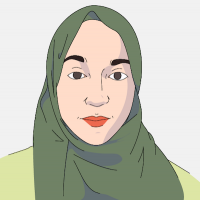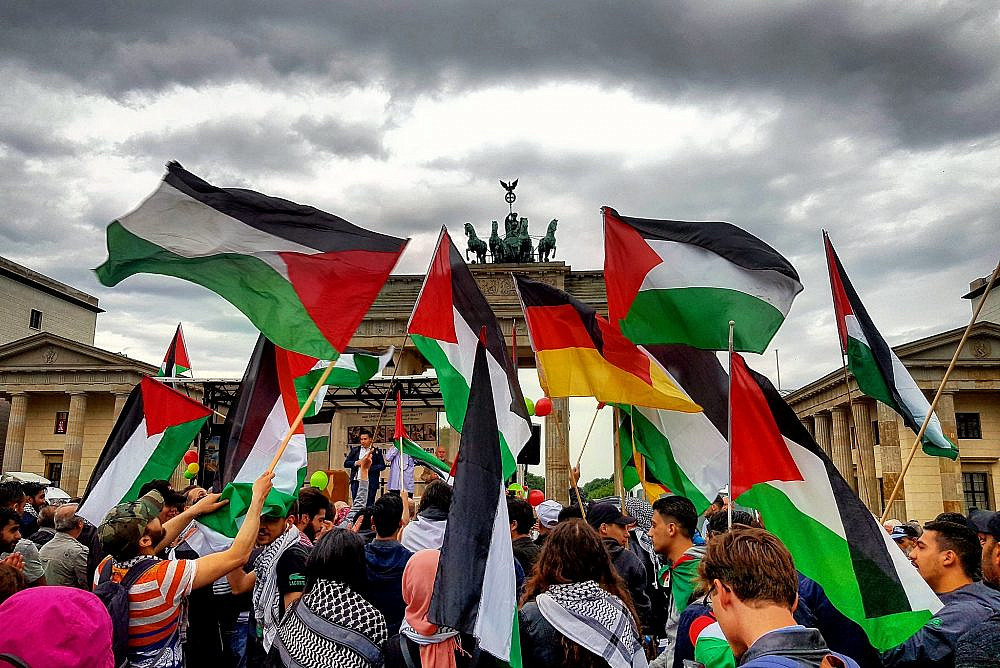In 2017, Eleonora Roldán Mendívil, an academic teaching at the Free University of Berlin, suddenly found herself unemployed, after she commented on a blogpost that Israel was “a colonial project” and an “apartheid state.” Pro-Israel groups in Germany targeted Roldán Mendívil, labeling her an antisemite. The university launched an investigation into her comments, headed by Wolfgang Benz, a nationally-recognized researcher on antisemitism. Benz’s report exonerated her from all accusations of antisemitism, but the university refused to publish the findings, according to Roldán Mendívil (the university did not respond to a request for comment). Instead, they wanted her to accept a non-disclosure agreement to forbid her from talking about the report publicly. Roldán Mendívil refused.
In another case, a prominent research and data collection center, Recherche- und Informationsstelle Antisemitismus (RIAS), prepared a secret file about Anna-Esther Younes, a German Palestinian academic specializing in critical race theory, Whiteness, and psychoanalytic theories in Germany, in order to get her disinvited from an event where she was speaking. During the event, the organizers publicly grouped Younes with a far-right shooter who targeted a synagogue, based on her having signed a letter that critiqued the anti-BDS resolution the Bundestag had signed. Having been excluded from the event, Younes wasn’t able to defend herself.
Then in July, during an online vote on an anti-Boycott, Divestment, and Sanctions (BDS) resolution at a German university, students against the resolution who were wearing keffiyehs suddenly noticed their cameras had been disabled. The student parliament of the University of Münster, which was holding the event, claimed the keffiyehs were a “politically inappropriate form of dress”; the organizers also did not give the students the chance to respond, despite promising them speaking time prior to the meeting. The resolution, which passed, labels any student organization that endorses the BDS movement.
These are only three cases highlighting the shrinking space for Palestine advocacy in Germany, where pro-Palestinian speech is dismissed and framed almost automatically as antisemitic. Pro-Palestine censorship in Germany escalated following the passage of an anti-BDS resolution in the German parliament in 2019. By categorizing the movement as antisemitic, the resolution effectively restricted all organizations that endorse BDS from accessing public funds and public space.
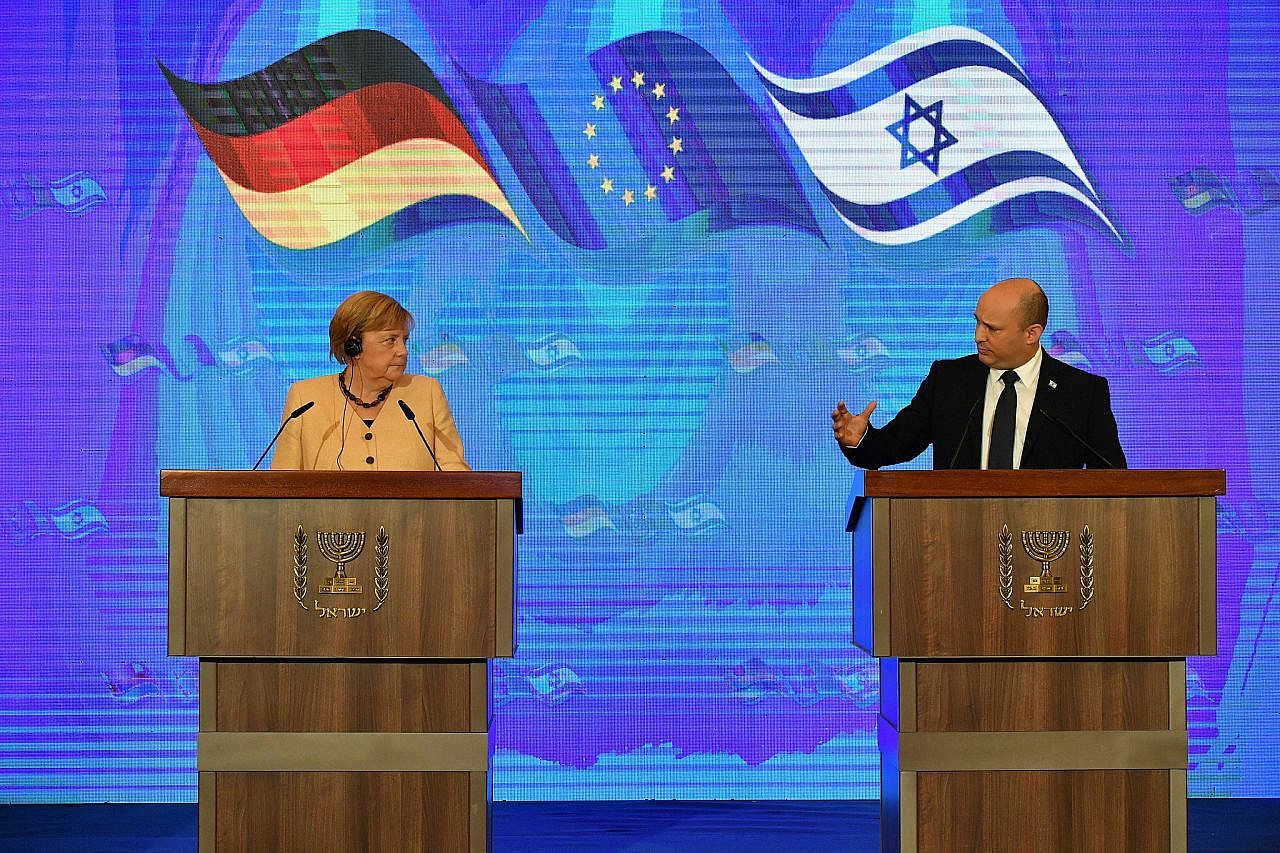
The silencing of Palestine advocates goes beyond the highly-charged debate over BDS, however, and is rooted in Germany’s longstanding ideological support for Israel — which Angela Merkel recently reaffirmed on her final trip to Israel as German Chancellor, reassuring Israeli Prime Minister Naftali Bennett that Israel’s security would remain a “central issue” for the German government after she has stepped down. Yet activists and scholars say that this commitment is not only expressed through Germany’s diplomatic, military, and financial support for Israel: it also, they say, appears in the defamation of individuals and organizations who resist Israeli apartheid in the name of fighting antisemitism. The blow has been particularly significant on German university campuses, where students and scholars say this policy discriminates against them by restricting their access to resources, disrupting their ability to organize, and interfering with their chances of employment.
An overdue colonial reckoning
The roots of this dynamic lie partly in Germany’s efforts to atone for the Holocaust, according to human rights historian Dirk Moses. In a recent essay, Moses describes a “catechism” in German society that, with the aim of restoring their nation’s tarnished moral heritage from the Nazi era, mandates a special loyalty to Israel and Zionism. Thus, he argues, is Germany’s geopolitical legitimacy and position as a European superpower tied up with “defending a military dictatorship over Palestinians.”
Sami Khatib, a cultural theorist and philosopher based in Berlin, argues that it is this very “catechism” that claims a moral high ground of political responsibility for which Palestinians have to pay the price. “Germany’s historical atonement ultimately means Palestinians are non-existent,” he said.
“In order for Germany to reckon with their past, German elites and politicians needed, and still need, a partner that claims to speak for the survivors of the Holocaust. Palestinians have just become an annoying disturbance in this troubled, and nowadays convenient, relationship.”
Support for Israel has, therefore, become a fundamental part of Germany’s post-war identity. Activists say this informs government gestures such as the anti-BDS resolution — which has had stark implications for advocates for Palestinian human rights, who cite a culture of fear and intimidation. The anti-BDS resolution has, according to critics, given pro-Israel groups license to attack Palestinian organizations, artists, academics, and individuals, preventing them from accessing public resources and excluding them from various cultural and academic institutions.
According to these scholars and activists in Germany, an inconsistent grappling with history and a deep-seated conservative streak have rendered German universities particularly resistant to the Palestinian narrative.
“Germany has not been confronted with its colonial past and it isn’t the main topic being discussed in either German schools or at the university level,” said Ramsy Kilani, a Palestinian student activist and member of the Socialist-Democratic Students’ Association (Die Linke SDS). In contrast to the public recognition of the Holocaust, for example, it was only this year — a century later — that the German government acknowledged its responsibility for the Herero and Nama genocide during its colonial occupation of what is now Namibia.
The parallels between postcolonial theory and the situation in Palestine therefore remain unspoken. “In most cases, you cannot talk about Palestine in the university because Palestine [for Germans] is a very unsettling topic,” said Khatib, the cultural theorist and philosopher. “Left-liberal academics would see Algeria as a colonial case, defend the rights of victims of the Armenian genocide against Turkey or support the Kurdish struggle for self-determination — but draw the line at considering Palestinian victims and recognizing the legitimacy of the Palestinian struggle for decolonization.”
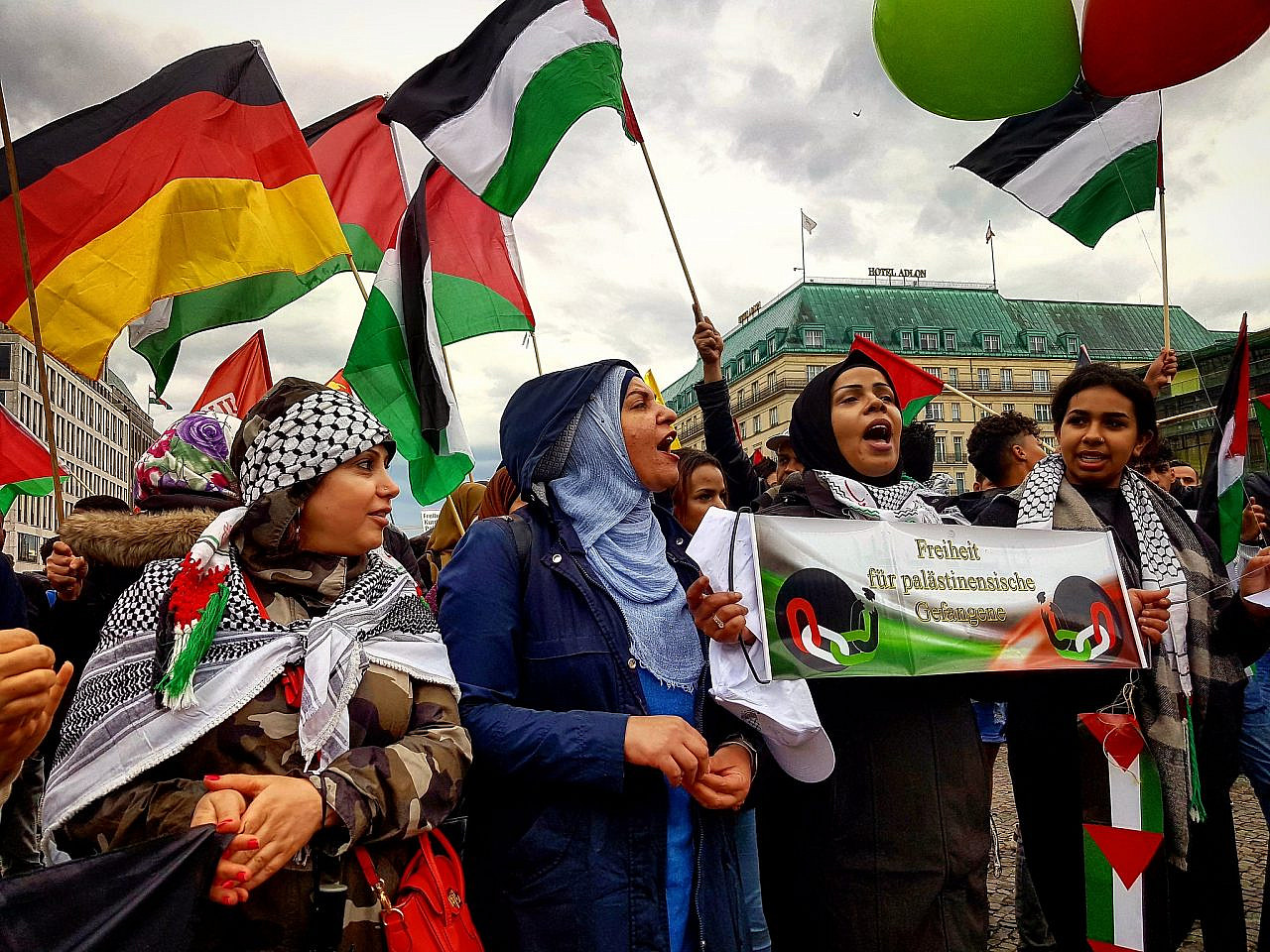
“They believe that Israel is the legitimate state that speaks in the name of the victims of the Holocaust — for the German public, this state became the morally pure successor of those victims that were murdered in the German name,” he added.
But other than the content, the hierarchical and conservative nature of German academia leads to the exclusion of marginalized academics, said Shir Hever, an Israeli researcher and board member of Jewish Voice for a Just Peace. Within this structure, career progressions are tied as much to “personal connections” as to performance, he added. “Very few people of color and immigrants make it into academic jobs, especially senior ones.”
Even when Palestinians do get academic jobs, their presence is subject to what Sanabel Abdelrahman, a Palestinian scholar based in Germany, calls “apologist academia.” This framework, she explains, orientalizes scholarship on Palestine and focuses on depoliticized aspects of culture and tradition at the expense of engaging with the struggle of Palestinians against Israeli colonization. Academics who focus on Palestine are thus often obliged “to rescue the Palestinian discourse and right to narrate from German guilt, which barricades and terminates it,” she writes.
Systemic discrimination and exclusion
This environment has, according to academics who spoke with +972 Magazine, proved fertile soil for the 2019 anti-BDS resolution. The German Rectors’ Conference (HRK) — the association of public and government-recognized universities in Germany — not only publicly supported it, but also adopted the International Holocaust Remembrance Alliance (IHRA)’s controversial working definition of antisemitism, which cites criticisms of the Israeli state as examples. (As recently as 2019, the HRK warned of the dangers to academic freedom in an age of “radically polarized opinions,” and stressed the “need to face up to attacks on academic freedom.”)
Although the resolution has no constitutional weight, and only applies to organizations rather than individuals, the “accusation of antisemitism is a greater deterrent than an actual law would be,” according to Emily Dische-Becker, an investigative researcher who lives in Berlin. “You don’t really need a law against individuals because a resolution that is vaguely worded will be over-enforced to target individuals.”
“If we go to the court with proof of discrimination for our political views, we would of course win,” said Sami Khatib. “But when you are not a part of the consensus, discrimination comes in the form of structural and systemic exclusion.”
Younes has experienced this exclusion directly. She says that since completing her Ph.D., she has been unable to find a permanent teaching job because of her political stances on Palestine. Would-be employers, she said, know they “can’t hire someone whose persona would unleash a thorough cut to funding and a public media campaign against the university.
“It’s structural and institutional discrimination blended with fear to lose one’s job, career, and existence in a system that is built on ideological power hierarchies,” Younes continued. “A majority of German academics will treat you like you’re a pariah, and some are even nervous to be seen with you. To my mind, all of that amounts to the ideological erasure of Palestinians, which became easier to rationalize — institutionally and personally — since the BDS resolution.”
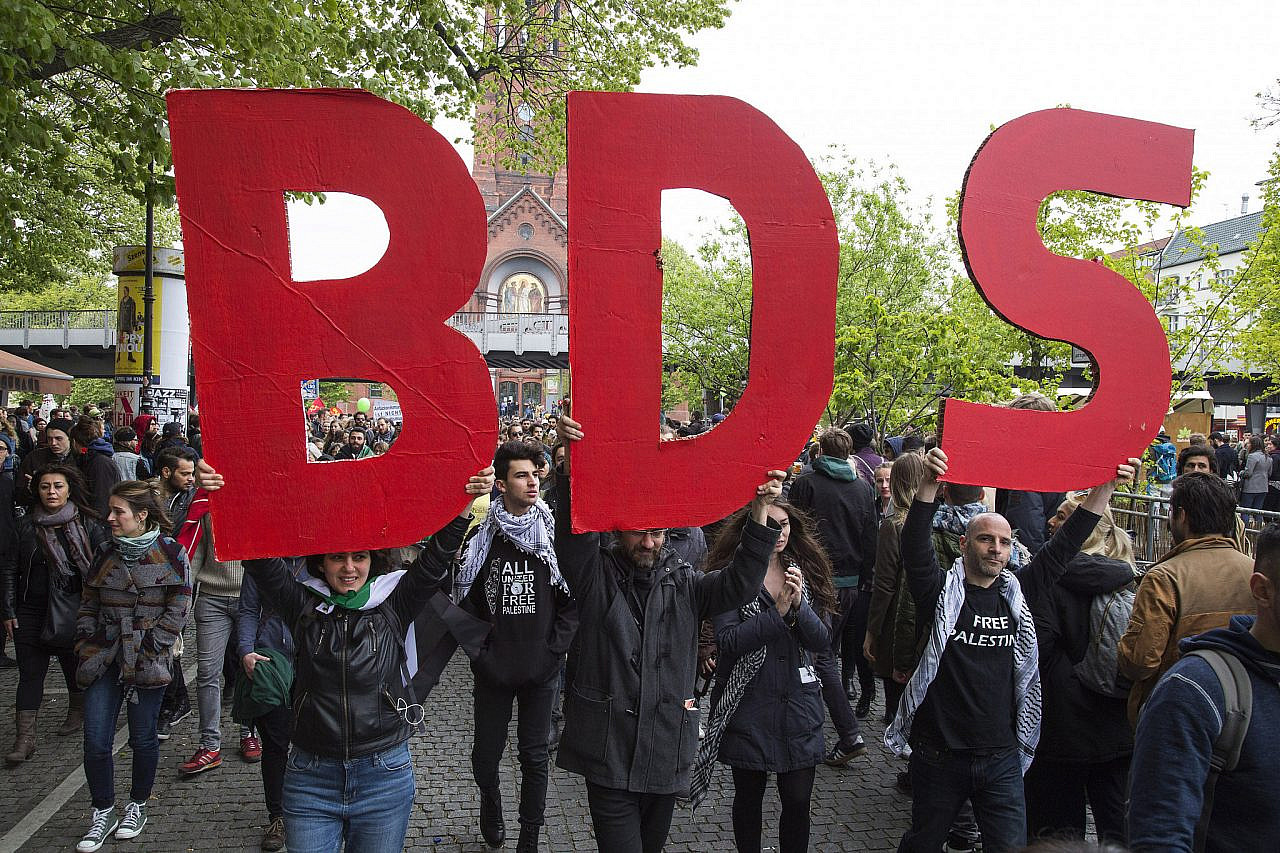
The resolution has also undermined groups seeking to provide education on the Palestinian narrative. Late last year, Weissensee Kunsthochschule, a Berlin art college, abruptly retracted funding for a program organized by The School for Unlearning Zionism, a group of Jewish Israeli artists who seek to challenge the Zionist narrative. Just days into the program’s launch, the university administration took the group’s page down without notifying the organizers.
The university’s response was prompted by an email by a conservative German journalist, Frederik Schindler, citing ties with the BDS movement as a pretext for denying funds to the group. “We had to decide quickly how to handle the protest against the realization of their event,” university spokesperson Birgit Fleischmann told +972. She confirmed that the parliament’s anti-BDS resolution was used as justification for the withdrawal.
Yet it is not just university authorities that have followed the example of the anti-BDS resolution when seeking to shut down speech on Palestinian rights — individual students and student bodies, too, have used the resolution as a pretext for disrupting Palestine advocacy.
Kilani, the student activist, says that many student bodies in charge of administration and distributing finances from their universities are “progressive except for Palestine,” and that as a result they can “block financial support and access to space for pro-Palestinian student groups,” as well as disrupting Palestinian events in other ways.
And although this phenomenon existed before the passage of the Bundestag resolution, it has nonetheless bolstered such efforts. In June 2019, a month after the government passed the resolution, German student groups consisting of broad political factions such as the Green Party, Social Democrats, and Angela Merkel’s Christian Democrats, came together and passed their own resolution condemning the BDS movement and stating that they would not engage in any sort of cooperation with BDS supporters. The resolution called BDS “a particularly aggressive expression of antisemitism for which there can be no room at German universities.” And this year saw the anti-BDS vote that froze out students wearing keffiyehs.
“It is not only [that] we are attacked institutionally, but also within the student bodies, as they have internalized the criminalization of all Palestinian solidarity,” Kilani said. “We do not need an active Israel lobby — Germans are willing to defend Israel on their own conviction, for free.”
‘Palestine really will be free one day’
Despite the atmosphere of ongoing surveillance and censorship, however, advocates for Palestine in Germany have noticed a shift since the bombardment on Gaza and the violence in Jerusalem last May. Advocates on the ground estimated 15,000 protestors took to the streets in major German cities to voice their solidarity with Palestinians throughout the escalation.
“For a long time I was of the conviction that one of the fiercest battles that will have to be fought to win the struggle against the carefully designed Israeli system of legalized, institutionalized and normalized violent discriminatory rule over Palestinians will be in Germany,” wrote Hanan Toukan, a professor of Middle East Studies at Bard College Berlin, after the protests. “That changed in May 2021. It dawned on me when I first heard the chants of freedom for Palestine thunderously echoing along the streets of Berlin…that Palestine really will be free one day.”
This can be seen within classrooms as well. Roldán Mendívil, who was able to find a teaching position this year, claims her students actively spoke about Palestine in the classroom. “What they saw on social media was impossible to ignore,” she said.

